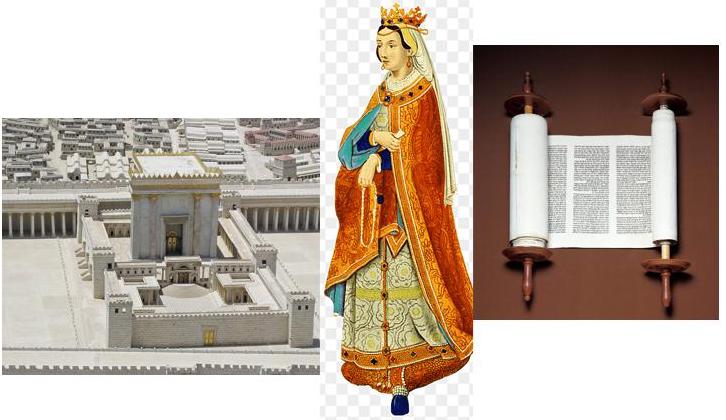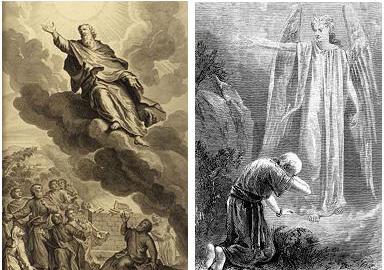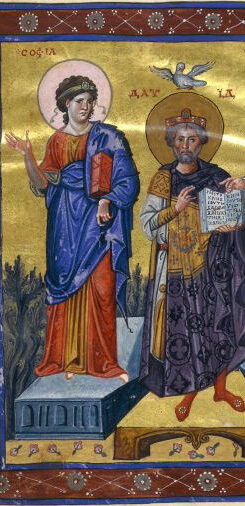Someone reminded me that I have yet to complete a series I began in 2013!
- Christ Before Christianity, 1: Dating the Parables of Enoch
- Christ Before Christianity, 2: A Man Ascended to Heaven
Never let it be said I cannot be relied upon to keep my word, so here goes . . . .
* I use the term Judean for the same reason Steve Mason uses the term in A History of the Jewish War, A.D. 66-74), p. 90. Mason explained that his reason was
“not because I have any quarrel with the use of Jews. . . . But our aim is to understand ancient ways of thinking, and in my view Judeans better represents what ancients heard in the ethnos-polis-cult paradigm. That is, just as Egypt (Greek Aegyptos) was understood to be the home of Egyptians (Aegyptioi), Syria of Syrians, and Idumaea of ldumaeans, so also Judaea (Ioudaia) was the home of Judeans (loudaioi) — the only place where their laws and customs were followed.“
(Mason, Steve. A History of the Jewish War, A.D. 66-74. Cambridge: Cambridge University Press, 2016. p. 90)
The aim of this series is to explore the ideas “in the air” among Judeans* at the time Christianity was born. In other words, we are looking at the matrix from which Christianity emerged. The guiding text we are focussing on is The Messiah: A Comparative Study of the Enochic Son of Man and the Pauline Kyrios by James Waddell.
In what we generally hold to be the earliest texts addressing the nature of wisdom — Job and Proverbs — Wisdom is presented as a goddess or divine attribute. But those ideas were only part of the picture.
Sirach and Baruch
In the second century before the Christian era a work known as Sirach taught for the first time that Wisdom (unlike the goddess or divine attribute of earlier traditions) was a heavenly being who lived in heaven with the angels and who asked God for a place to live on earth. The real estate chosen for Wisdom was the Temple in Jerusalem; as an annexe Wisdom was also to be found abiding “in the Torah”. That is, Wisdom showed herself in the priestly cult and in the commandments of the Torah. (Not that Torah and Wisdom were identical, though. The two remain separate: the Torah does not become one with Wisdom as a pre-existent and heavenly being.) Similar ideas about Wisdom were repeated in the Book of Baruch soon afterwards.

Daniel and early Enoch
A quite different view of wisdom was portrayed in the Book of Daniel and early works of Enoch (before the Parables of Enoch). As if in direct rebuttal of Sirach and Baruch, Enoch declared that Wisdom will never depart from God or his throne in heaven.
Yes, Enoch and Daniel are wise men who teach wisdom, but their wisdom is a secret, something hidden, and only revealed to a small chosen elect group. Hence Daniel and Enoch are mediators of God’s wisdom but they do not make that wisdom available to everyone.
Wisdom in these texts is not for all of Judea and most certainly not for all of humanity. Rather, wisdom has existed from the beginning of time (Enoch was given to know it in the days before the Flood) and it will be revealed universally in the end time. Until that time of revelation (“apocalyptic” time) Wisdom remains secret except for the chosen few.
A wisdom-filled messiah is not found in these texts. The Son of Man of Daniel and the “snow-white cow” in the Dream Visions of Enoch may be understood as quasi-messianic figures at best but they are certainly not Davidic messiahs. Power and dominion belong to them but not “Wisdom”. Wisdom, as we have seen, is given to the mediators Daniel and Enoch who pass on the secret knowledge of the times to come.

Psalms of Solomon
In the first century B.C.E. the Psalms of Solomon mention a Davidic messiah to appear in the “last days”. The seventeenth psalm pictures this messiah Son of David wiping out sinners and ruling the survivors with “Wisdom and Righteousness” and “Wisdom and Happiness”.
Here, Wisdom resides neither in the Torah nor in the Law. Nor is it found in a mediator between God and humankind. The Psalms of Solomon drew upon the scriptural Isaiah 11:2
1 A shoot will come up from the stump of Jesse;
from his roots a Branch will bear fruit.
2 The Spirit of the Lord will rest on him—
the Spirit of wisdom and of understanding,
The “shoot” from the stump of Jesse is, of course, David, but given that Isaiah is a prophecy we must read it as a Davidic figure destined to make an appearance in the future.
The relevant passages from the Psalms of Solomon 17 and 18:
According to PsSol 17, the Messiah will drive out the sinners “in wisdom and righteousness” (17:23), “will rule peoples and nations in the wisdom of his righteousness” (17:29), and “will bless the Lord’s people with wisdom and happiness” (17:35). , , , “God made him … wise in the counsel of understanding with strength and righteousness” (17:37); “those born in these days… (will live) in wisdom of spirit and of righteousness and of strength” (18:7).
(Boccaccini, 274)
So the hope is in the advent of a Davidic Messiah to rule with wisdom. The point to take away from all of this is:
Both wisdom and power are given to the future Messiah, the Son of David.

The Wisdom of Solomon

But there were other viewpoints alongside the above among the Judeans in the years preceding the eruption of Christianity. The Wisdom of Solomon, like the Psalms of Solomon, was composed during the early Roman period but it contained a very different understanding of the place of wisdom. Here wisdom belonged to every righteous suffering person in this world. (And by definition, the righteous always suffer.) There was nothing “end-time” about it. It was not hidden in heaven. It was with every righteous person who asked God to grant it.
Unlike the Psalms of Solomon, the Davidic traditions are not associated with a future Messiah, the Son of David, but are used to describe “a typical figure who is persecuted and put to death by rich and powerful opponents but vindicated in the heavenly court”29 — a symbol in the chain of the children of Wisdom on earth. This is the way Wisdom reveals herself — not secretly, not indirectly, but acting in the first person, directly, in human history. There is not one particular mediator, not even Solomon, but a series of mediators. “In every generation she passes into holy souls and makes them friends of God and prophets” (7:27). Wisdom is not remote but easily accessible to humankind: “she is easily discerned by those who love her, and is found by those who seek her” (6:12).
(Boccaccini, 275)
Contrast Sirach and Baruch above. In those texts Wisdom had an indirect salvific role, “realized through observance of the priestly law”. In the Wisdom of Solomon Wisdom has a direct salvific role.
The Parables of Enoch
Not so, according to the Parables of Enoch. For the Parables, Wisdom could not find any place to dwell on earth. She did go out looking for somewhere to live among the people of Israel but failed. Result: she was obliged to return to heaven.
There is no room in this world for the salvific role of Wisdom, both directly (as for the Wisdom of Solomon) or indirectly through the priestly Law (as in Sirach or Baruch). (Boccaccini, 276)
For the first time we find wisdom clearly and unambiguously associated with the Son of Man Messiah. (In the Parables of Enoch there is no doubt that the pre-existent Son of Man figure is also the Messiah.)
Part of this Messiah’s job description is to reveal wisdom to humanity. Here is the opening of the Parables:
The vision of wisdom that Enoch saw. . . . This is the beginning of the words of wisdom, which I took up to recount to those who dwell on the earth. . . . let us not withhold the beginning of wisdom. Until now there had not been given from the presence of the Lord of Spirits such wisdom as I have received according to my insight . . . . (1 Enoch 37:1-5)
The Son of Man figure in the Parables is a revealer of hidden treasures:
This is the son of man who has righteousness, and righteousness dwells with him. And all the treasuries of what is hidden he will reveal; for the Lord of Spirits has chosen him . . . . (1 Enoch 46:3)
The Son of Man is not only destined to reveal wisdom; he himself will be revealed by wisdom:
And in that hour that son of man was named in the presence of the Lord of Spirits, . . . And the wisdom of the Lord of Spirits has revealed him to the holy and the righteous; (1 Enoch 48:2, 7)
The Son of Man will have all the secrets of wisdom and will reveal wisdom to the truly devout:
For the Chosen One has taken his stand in the presence of the Lord of Spirits; and his glory is forever and ever, and his might, to all generations. 3 And in him dwell the spirit of wisdom and the spirit of insight, and the spirit of instruction (1 Enoch 49:2-3)
And the Chosen One, in those days, will sit upon my throne, and all the secrets of wisdom will go forth from the counsel of his mouth, for the Lord of Spirits has given (them) to him (1 Enoch 51:3)
The Parables of Enoch draws us in to witness a remarkable scene. Enoch is presented as its author. That is, Enoch is the one to whom angels are granting heavenly visions. But something mysterious happens as we read on: Enoch himself becomes gradually transformed into the pre-existent Son of Man figure that he sees in vision, and as the pre-existent Son of Man Enoch is at the same time the Messiah, too.
This is not an incarnation of the Son of Man and Messiah, however. As James Waddell notes pointedly: “This is the opposite of ‘incarnation.’” (p. 87) The earthly Enoch is changed into the spirit Messiah Son of Man figure.
And out of that house came Michael and Raphael and Gabriel and Phanuel and many holy angels without number. And with them was the Head of Days, and his head was white and pure as wool, and his apparel was indescribable. And I fell on my face, and all my flesh melted, and my spirit was transformed.
And that angel came to me and greeted me with his voice and said to me, “You are that son of man . . . .“ (1 Enoch 71:9-11, 14)
As the Messiah Son of Man, the heavenly Enoch becomes the destined revealer of divine wisdom.
. . .
Such were some of the ideas talked about in the world from which Christianity was born.
Next post (hopefully before nine years from now) we’ll look at pre-Christian Judean ideas about the Messiah’s relationship with Salvation.
Boccaccini, Gabriele, ed. Enoch and the Messiah Son of Man: Revisiting the Book of Parables. Grand Rapids, Mich: William B. Eerdmans, 2007.
Nickelsburg, George W. E. 1 Enoch: A New Translation; Based on the Hermeneia Commentary. Minneapolis: Fortress Press, 2004.
Waddell, James A. The Messiah: A Comparative Study of the Enochic Son of Man and the Pauline Kyrios. London; New Delhi: Bloomsbury T&T Clark, 2013.
If you enjoyed this post, please consider donating to Vridar. Thanks!

Gosh, “Sirach taught for the first time that Wisdom . . . was a heavenly being who lived in heaven with the angels and who asked God for a place to live on earth. The real estate chosen for Wisdom was the Temple in Jerusalem; as an annex Wisdom was also to be found abiding “in the Torah”. That is, Wisdom showed herself in the priestly cult and in the commandments of the Torah.” I wonder who benefited from this “revelation?”
In politics, the weathervane is “follow the money.” In religion it is “follow the power flowing to the priests.” I suggest that a principle we should use in Biblical interpretations is that if some declaration or prophecy or whatever, caused power to flow to the priesthood, you can count on it not being divinely inspired, and that it was slipped into scripture by priests to provide more power to the priesthood, and that alone.
What would the Bible look like if all of the priesthood empowering verses were stripped out?
When Passover starts in a few days the empowered priests among us should have to all hop around on one foot beseeching their flying spaghetti monster rain god to turn off the thunderstorms:
https://web.archive.org/web/20150722142128/http://www.haaretz.com/misc/article-print-page/.premium-1.650005?trailingPath=2.169%2C2.208%2C2.210%2C
https://failedmessiah.typepad.com/failed_messiahcom/2015/04/was-passover-originally-an-ancient-canaanite-ritual-festival-meant-to-stop-the-winter-rain-from-ruining-spring-crops-234.html
Those at Elephantine in southern Egypt in the 400’s BC observed Passover yet knew nothing about Moses, Abraham, or the Torah. Curious facts known by [some] scholars for over a hundred years and yet conveniently ignored by all the true believers of the Torah, Bible, and Quran. Sure appears to be a foundation of sand with no real substance underneath [or none before 270 BC as per Gmirkin & Wajdenbaum].
Hi Neil,
There are several competing theories of where wisdom resided in the Ancient Near East and para-biblical literature (as you discuss).
The idea of the king as wise + just is very common in Ancient Near Eastern literature, including the prefaces of the various law codes.
The priesthood as a repository of wisdom may be a late Judean idea. Ancient Near Eastern priests had monopolies on temple rituals, but these represented a specialized form of knowledge, not Wisdom per se.
Babylonia/Assyria has several guilds of scholars who specialized (and monopolized) various “scientific” arts such as astronomy, healing, exorcisms and others. This revealed knowledge traced back to the apkallu, semi-divine beings who revealed all the arts of civilization to the first kings of the primordial age, before the flood (see most conveniently Berossus). The scholars (ummanu) claimed their authority from this revealed (“apocalyptic”) knowledge. In 1 Enoch 6-9 the Watchers are the ones who reveal this knowledge to humans. Helge Kvanvig has IMO convincingly shown that the Watchers trace back to the Babylonian apkallu. Both Enoch and Daniel are representatives of this type of divinely revealed wisdom, which included revealed astronomy (1 En 72-82), prophecy, and other categories of revealed wisdom.
Enoch to some extent constitutes his own special class of repository of Wisdom, a righteous human is taken into heaven, shown divine secrets, and returns again.
The biblical Enoch, the seventh generation after Adam, who was taken into the presence of God, is widely believed (VanderKam, Kvanvig, Annus) to have been modeled on Enmeduranki, the seventh king before the flood in Babylonian (Sumerian) tradition, who was taken up into the presence of the gods Shamash and Adad and shown various divine arts including reading prophetic omens from livers of animals and from the way oil floats on water. He then returned to earth with these arts that he shared with the ummanu. Like the Son of Man in Daniel, he is a royal figure favored by the gods who ascends to heaven and returns again.
Amar Annus also discusses prominent parallels between Enoch (the “son of Man”) and Adapa (the “son of Oannes”), another pre-deluge Babylonian figure who was taken up to heaven. (See https://www.researchgate.net/publication/341432342_The_Heavenly_Counterparts_of_Adapa_and_Enoch_in_Babylonia_and_Israel.)
I only mention all this to bring out the echoes of Babylonian mythology in the ideas of revealed divine Wisdom and also of the Son of Man. These were not local Jewish/Judean developments but were rooted in much older ideas. Perhaps a clue?
Thanks for the reference, Russell. Don’t hesitate to add others that you see of related interest.
Boccaccini did cite Ahiqar along with Job and Proverbs as part of “the ancient sapiental tradition” but I chose not to follow up that Mesopotamian context mainly because I was already 9 years overdue with my post and thought I’d best delay that new exploration.
I’m very keen to come back to that side of the question.
WISDOM IN DISTRESS: A LITERARY AND SOCIO-HISTORICAL APPROACH TO THE ARAMAIC BOOK OF AHIQAR (2015) https://diginole.lib.fsu.edu/islandora/object/fsu:253198/datastream/PDF/view